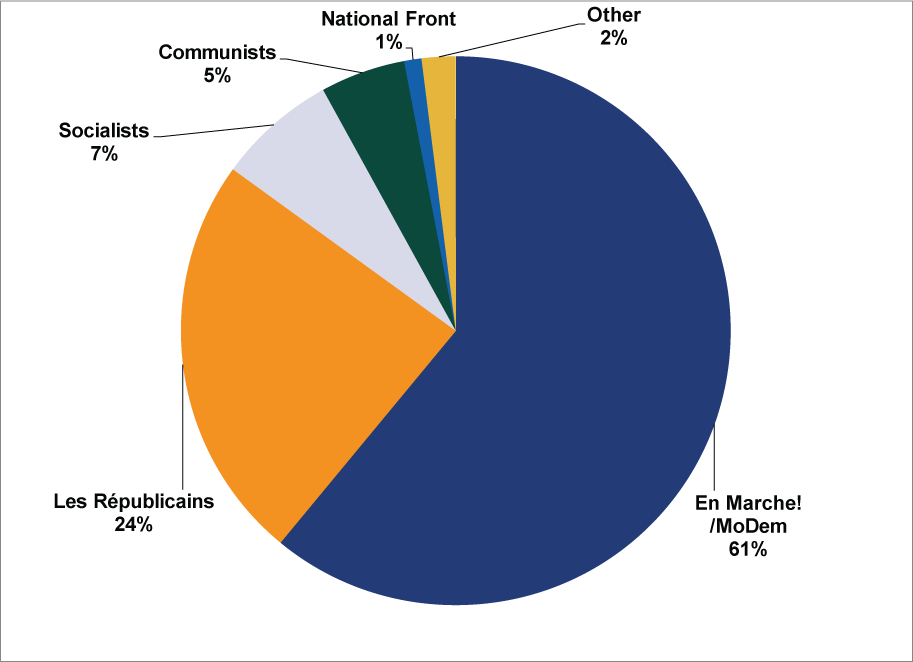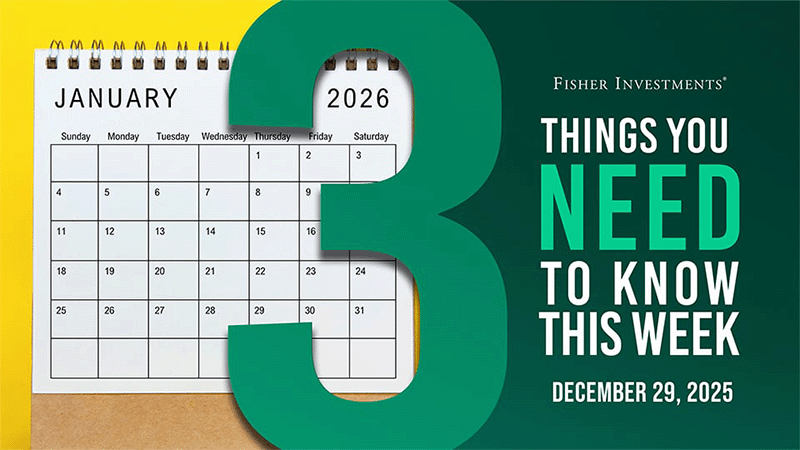Personal Wealth Management / Market Analysis
Victory to En Marche!
The passing of Sunday's French parliamentary elections adds to Europe's streak of falling political uncertainty.
The fourth and final round of French national elections concluded over the weekend, clearing a major milestone in the year of falling political uncertainty. President Emmanuel Macron's centrist La République En Marche! party and its ally, the Democratic Movement (MoDem), gained a clear majority in the National Assembly after winning 61% of the seats (350 of 577) in the second round of the French parliamentary election. (Exhibit 1)
At a surface level, this result technically reduces political gridlock in France. However, the En Marche party is itself an exercise in gridlock, as it is essentially a blend of center-left and center-right politicians. It includes lawmakers that defected from both of the traditional Socialist and Republican Parties. A centrist coalition likely pursues more moderate policies aimed at incremental change rather than broad, sweeping legislation with the potential to really shock markets. For example, the party's primary policies likely include reforming labor laws, cutting corporate taxes, reducing a bloated civil sector and promoting entrepreneurship. Yet none of the proposals unveiled thus far appear terribly radical. Labor market reforms, for example, appear to dance around third rails like France's 35-hour workweek. Plus, En Marche is also just over a year old, and over half of its National Assembly members haven't held any political office before. How well these political novices work with the old guard-and how well the center-right and center-left can agree on policy details-will be worth monitoring, but intraparty gridlock likely creates additional hurdles to legislation.
While one could argue French gridlock could dash hopes for big pro-business reforms, potentially setting up stocks for disappointment, Macron's relatively watered-down agenda is already widely known. Moreover, having less potential for radical legislation means less chance for new laws to create winners and losers, which reduces one source of risk for markets.
The next major elections scheduled on the Continent are Germany's in late September. As Europe's year of falling uncertainty continues, we expect eurozone markets to climb higher as investors get past their political concerns and warm up to Europe's better-than-appreciated reality.
Exhibit 1: Results of the French National Assembly Elections

Source: Fisher Investments Research, as of 6/19/2017.
If you would like to contact the editors responsible for this article, please message MarketMinder directly.
*The content contained in this article represents only the opinions and viewpoints of the Fisher Investments editorial staff.
Get a weekly roundup of our market insights
Sign up for our weekly e-mail newsletter.

You Imagine Your Future. We Help You Get There.
Are you ready to start your journey to a better financial future?

Where Might the Market Go Next?
Confidently tackle the market’s ups and downs with independent research and analysis that tells you where we think stocks are headed—and why.





